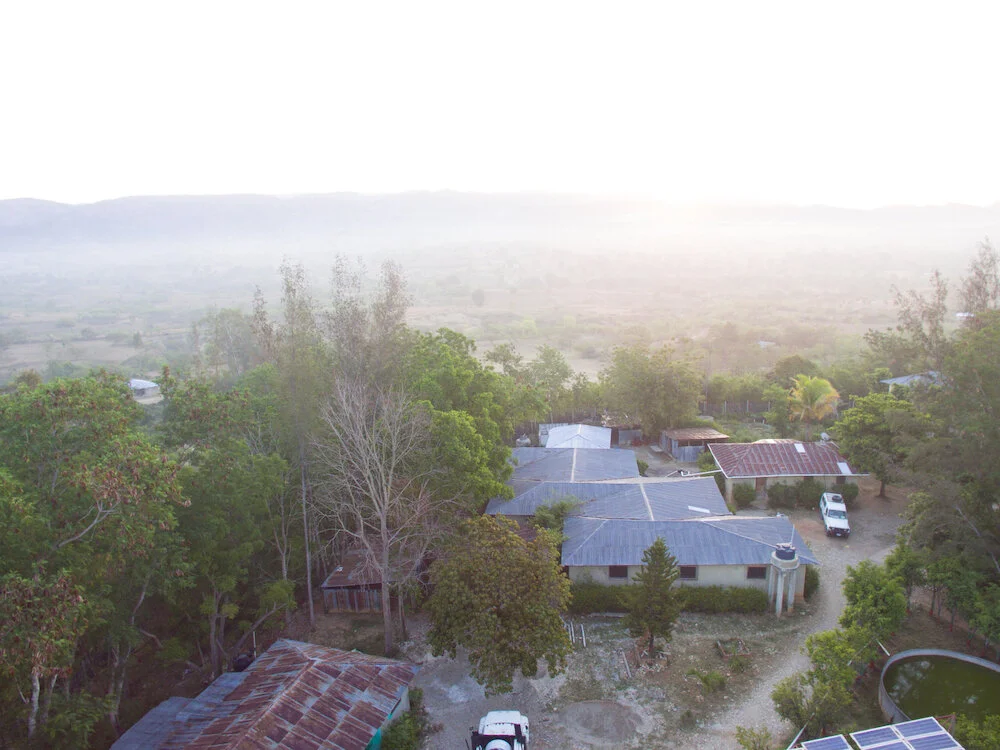First Day of School in the EcoVillages
“They arrive with a smile on their faces reminiscent of the dry land welcoming the refreshing rain.”
Older kids experience the first day jitters. They want to be with their friends, and they fully understand the importance of their education.
The opening of schools in Haiti was delayed until September 21 because of the massive earthquake in August that left 100,000 homeless in Southwestern Haiti. Though the people in the Central Plateau did not suffer property damage, the impact on the nation has had ripple effects everywhere. Many of these children and their families are survivors of the 2010 Earthquake.
Directeur Ramin spoke at the Opening Ceremony and expressed his joy in welcoming back students, parents and teachers. He also took time to charge the students, reminding them of the importance of education, of hard work and why they need to study and do their homework. He promised them books to help with their learning in class, and a warm lunch to sustain them each day.
This new school year begins with significant positive affirmation of the quality of education the school provides daily.
Sixteen of the nineteen 9th graders passed the national high school eligibility exam, a critical rite of passage for Haitian students.
We all celebrate the success of the sixteen. The school director, teachers and students continue to pursue their goal: a success rate of 100 percent. More details on these students in upcoming posts.
What kind of school is this?
This is the kind of school children run towards each morning! Without the EcoVillage School, these children would have no school.
In Haiti this is called a Fundamental School. The 10 classrooms provide learning space for students in preschool through 9th grade. Classes are taught in Kreyol (Creole), the language of the children, and they learn French which is the official language of government and commerce.
When did it open? The EcoVillage School opened the first 3 classrooms in September 2014. New classrooms and grades were added each year until construction was completed.
How many children attend? Enrollment includes more than 300 students, about 1/3 from the EcoVillages and about 2/3 from the surrounding rural area.
Does it provide a quality education? All teachers hold national certification from the Haitian Ministry of Education and follow the curriculum established by the Ministry. Our first graduating class was in 2021. In an impressive showing, 16 of the 19 children passed the national high school entrance exam, proving the worth of their education.
Is the school accredited? The Ministry of Education certified the school in 2018. Since then, students proudly wear the blue uniform reserved for “National Schools” communicating to all that these children are receiving a quality education.
Is the school financially self-sufficient? From the beginning, the founding partners in Haiti and Atlanta set financial self-sufficiency as the goal. Accreditation by the Ministry of Education obligates the national government to fund the school. In theory, this ensures the financial self-sufficiency of the school. However, today’s reality is that the national government is not functional, some would say nonexistent. It has no funds to allocate, leaving schools without government support. Many schools have closed.
Who funds the school? Until the government gets back on its feet, the Atlanta EcoVillage School, supported by MPP, its Haitian partner, keeps the school open through annual fundraising.
Can the local community support its own school? Children attend school for free because most families are too poor to afford tuition. Attempts by the partners to foster locally-sourced income have failed in the face of poverty so severe that many families can’t feed themselves. Parents must provide uniforms and shoes. In 2021, a special gift provided 50 children who could not afford to attend with uniforms and shoes.
What good is national accreditation? Although accreditation has not led to financial self-sufficiency, it has opened the door to food donations from the U.N. and hoped-for support from other NGOs such as World Vision, which funded construction of a suitable toilet building.
This is my school. This is your school. This is the School in the EcoVillages. This video tells the story of the school in 2017.



